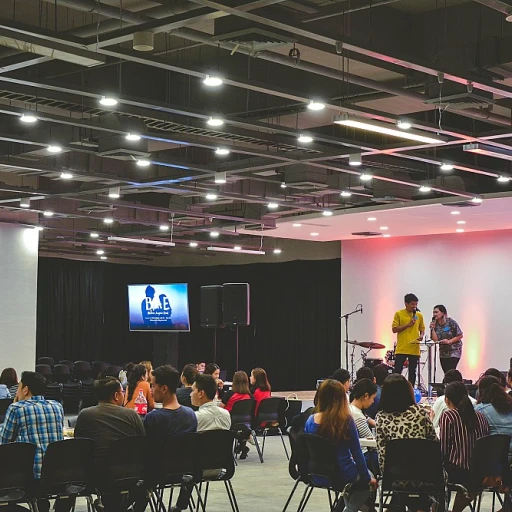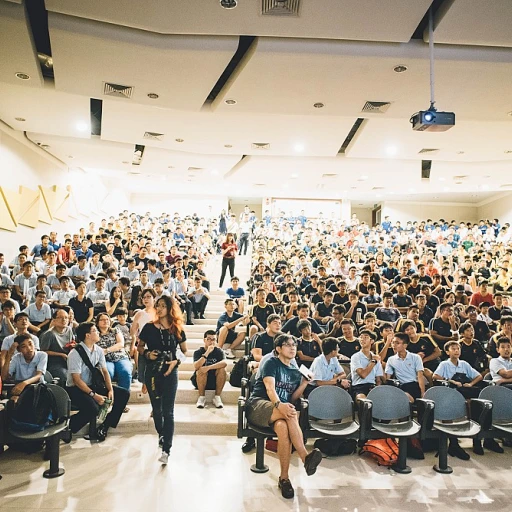
Understanding the Importance of HR Day
Celebrating a Milestone for Human Resources
International HR Day is an annual event that allows organizations worldwide to pause and appreciate the invaluable contributions of human resource professionals. Recognizing this day is more than just a symbolic gesture; it is a profound acknowledgment of the tireless work these individuals undertake to foster positive company culture and employee engagement. Each year, teams gather to celebrate international achievements, highlighting the vital role HR professionals play in promoting professional development and ensuring a healthy employee experience. Celebrating HR Day serves as a reminder of the hard work and dedication that goes into managing employee welfare effectively. A day celebrated with such reverence helps improve the overall mental health and morale of HR teams, encouraging resource professionals to continue developing skills necessary for navigating complexities within organizations. It also sheds light on the challenges faced and paves the way for future advancements in the field. For many organizations, HR Day is not just a local event but part of a broader international celebration. It provides the opportunity to highlight innovative approaches and the substantial impact of efficient human resource management practices. As organizations look forward to HR Day 2024, understanding notice requirements for mandatory overtime can enhance their communication strategies. By emphasizing appreciation and team building, businesses can craft a memorable HR Day that aligns with their goals and values. This celebration also opens doors for discussing the future of human resource management, including advancements in technology that redefine professional practices and employee experience. It's a moment to thank HR professionals for their contributions and support them in shaping a promising future for all employees.Key Challenges in HR Communication
Recognizing Communication Barriers and Misunderstandings
Effective communication is a cornerstone for any successful organization, especially in the domain of human resources. With the increasing complexity of global and diverse workforce environments, HR professionals face numerous communication challenges. These hurdles can impact the employee experience, team productivity, and overall company culture. Recognizing these barriers and addressing them is essential for fostering an engaging and appreciative work environment.
Language and Cultural Barriers
In an era where organizations boast an international presence, varying languages and cultural norms can create communication gaps. Language differences may result in misunderstandings, affecting both individual and team performance. Moreover, cultural differences may inhibit effective collaboration, leading to misalignment on objectives and appreciation methods.
Technological Advancements and Their Impact
The proliferation of digital communication tools has transformed professional interactions within organizations. While these technologies offer innovative solutions, they can also add layers of complexity. Misinterpretations can occur in written communications such as emails or chat platforms, where nuances are easily lost. Balancing technology use with personal interaction remains a key challenge for HR professionals.
Employee Engagement and Feedback Mechanisms
Another critical challenge lies in ensuring that employees feel heard and valued. Platforms for giving and receiving feedback must be accessible and encourage honest discourse. Employees who feel disconnected from their organization's mission or undervalued in their roles are less likely to engage fully in their professional development. Innovative solutions for employee engagement are imperative for nurturing a positive work culture.
Adapting Communication Styles for a Diverse Workforce
Catering to a diverse group of employees requires adapting communication styles to suit different preferences and backgrounds. It’s important to create inclusive communication strategies that resonate with everyone, from new hires to veteran employees, ensuring that information is communicated effectively across all levels of the organization.
Understanding and addressing these key challenges in HR communication is indispensable for creating a harmonious and thriving work environment, where company values are respected and appreciated globally. For those interested in crafting job ads that attract top talent and address communication nuances, explore our guide on compelling job ads.
Innovative Communication Strategies
Diving into Innovative Methods
In today's dynamic work environment, human resources communication demands creativity and adaptability. With HR Day celebrated across various organizations, finding innovative ways to connect with employees plays a crucial role in enhancing engagement and fostering a robust company culture. Here are some strategies that can bring fresh perspectives to HR communication:
- Interactive Workshops: Planning workshops that focus on professional development and skill enhancement can boost employee experience and appreciation. This develops a sense of community and promotes team building among employees.
- Storytelling Sessions: Encouraging professionals to share their success stories creates an environment of appreciation, celebrating international teams' accomplishments and recognizing their hard work on this professional day.
- Visual Communication: Utilizing visuals, like infographics and video messages, can make critical information more accessible and engaging for employees across the globe. Visual content is an expressive means to celebrate international diversity and engage people effectively.
- Feedback Loops: Implementing regular feedback sessions offers employees a platform to voice their opinions and insights, helping HR professionals tailor their communication to better meet team needs. This ongoing dialogue enhances the overall employee experience and ensures mental health considerations are prioritized.
- Recognition Programs: Introducing a structured appreciation program to recognize employees' hard work and dedication on HR Day can enhance morale and solidify the company's commitment to celebrating its human resource professionals.
The integration of these innovative strategies into HR communication encourages active participation and aligns with future HR trends. Embracing these changes not only acknowledges the past efforts but also sets a solid foundation for forward-thinking communication practices. For more detailed strategies on effective communication, visit Addressing Employee Time Theft: Effective Communication Strategies.
Role of Technology in HR Communication
The Transformative Role of Technology in Modern HR Communication
The evolution of technology has significantly influenced the ways organizations manage human resource communication. Transformative tools have reshaped the landscape, enabling teams to enhance engagement and streamline processes.- Communication Platforms: Technology offers a myriad of platforms that facilitate better communication within organizations. These not only include instant messaging tools but extend to platforms dedicated to employee engagement and appreciation, enhancing the experience in ways celebrate professionals everyday.
- Data Analytics: Data-driven insights have become invaluable for human resource professionals. By analyzing communication patterns and employee feedback, companies can make informed decisions to boost team morale and improve the employee experience.
- Global Connectivity: In an era where international teams are commonplace, maintaining efficient communication across different time zones is crucial. Technology bridges these gaps, helping ensure that every international human resource day celebrated reflects the collective hard work of a cohesive unit.
- Mental Health and Well-being: Establishing a robust support system for mental health is essential in today's professional world. Modern technology enables the development of platforms that provide well-being resources and enhance professional development opportunities for employees.
- Continuous Learning Platforms: Innovations in eLearning technology support ongoing professional development. By making courses and training readily available online, companies invest in the future of their workforce, leveraging skills that align with the evolving demands of day international scenarios.
Case Studies: Successful HR Communication
Learning from Real-World Examples in HR Communication
Effective communication in human resources is not only about understanding its significance or developing innovative strategies; it's also about learning from real-world examples and applying those lessons to foster better communication within an organization. Here are some case studies showcasing successful HR communication that organizations can learn from:- International Appreciation Day Initiatives: Many organizations have embraced the idea of celebrating international days dedicated to employees' hard work. By organizing events that celebrate diverse employee cultures and contributions, these companies have successfully enhanced employee engagement. For instance, a global company might host an "International Human Appreciation Day," bringing teams together to recognize their professional skills, fostering a sense of belonging and team building.
- Enhancing Employee Experience through Technology: The integration of technology into HR communication strategies has proven beneficial for many organizations. Companies that have adopted advanced communication tools have seen improved interaction between employees and management. This not only improves the employee experience by keeping everyone informed and engaged, but it also supports mental health by reducing misunderstandings and stress caused by poor communication.
- Developing Comprehensive Employee Development Programs: Companies that emphasize professional development through structured programs have reported higher satisfaction rates among employees. By effectively communicating the opportunities and personal growth paths available, these organizations enable employees to feel valued and motivated, which is crucial for long-term engagement.
- Boosting Company Culture Through Transparent Communication: Transparency in communication is a cornerstone of successful HR practices. Organizations that maintain open lines of communication and regularly update their teams about company strategies and goals often report stronger employee commitment. This approach not only solidifies trust but also strengthens the overall company culture.













